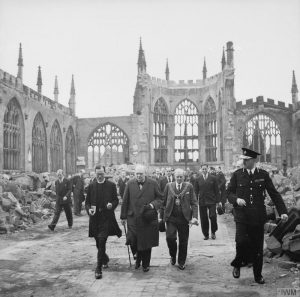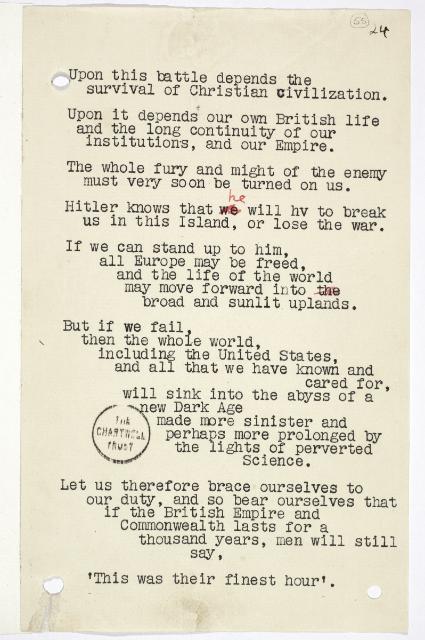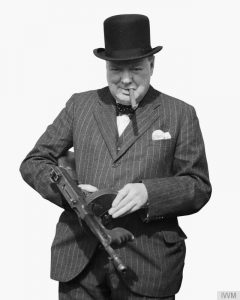
Man of Words
How Churchill Prepared for his Speeches

Churchill's 'Their Finest Hour' Speech © Churchill Archive Centre
August 18, 2021
Churchill drafted his speeches several times and wrote them out in a way that would help him deliver them effectively. He rehearsed passages, again and again, pacing his rooms, repeating them out loud, learning whole speeches by heart. He developed a unique oratorical style that both covered up and employed his speech difficulties so that his ‘lisp’ – or ‘stammer’, which could occasionally seem like a groping for words – became a prop, not a hindrance.
Until old age, Churchill wrote every speech himself, usually by dictating to a secretary and then revising on the typed copy. He would then ask them to present the words on the page in ‘speech form’, in the style of a poem, with staggered lines and breaks in the text (referred to by others as ‘psalm style’), so that he could see at a glance where to pause, hesitate or add emphasis, when delivering the lines. He was a relentless reviser of his speeches – as he was with his books, too – and made numerous drafts. The final version would be retyped on smaller sheets, the size of notepaper, and even these would show last-minute changes to the text, with crossings-out and added scribbled words.
Subscribe
WANT MORE?
Get the Churchill Bulletin delivered to your inbox once a month.




